(617) 436-5592
PREARRANGEMENTS
&
PreNeed Agreements
Funeral planning is a difficult process involving emotional stress, financial decision making and uncertainty. Without some guidance, the options and information surrounding funerals and arrangement planning can seem overwhelming at an already complicated time.
Pre-Planning Options
Many people plan for life events such as weddings and vacations well in advance, but many people do not plan for something that is certain to happen--their funeral. While most people do not want to think about their own morality, the time to pre-plan your funeral is now. The primary advantages of pre-arranging your funeral is to relieve the burden on your loved ones in an already emotional time, to ensure your funeral is carried out according to your wishes, and eliminate the task of second-guessing what you would have wanted. Taking the time now to arrange your funeral is one less thing your loved ones will need to worry about once you’ve passed. Pre-planning and pre-paying for your funeral is one of the most thoughtful gifts you can give to your family.
Pre-Payment Options
Pre-paying your funeral reduces stress and financial burden on your loved ones after your passing. We can co-ordinate a payment plan that suits your needs. From a single payment plan to monthly bank account withdrawals, we are here to assist. By pre-paying your funeral, you eliminate your family second guessing whether they have spent too much or too little on your funeral. Pre-payment also protects you and your family from inflation, and the growth is non-taxable. Depending on your region, if your funeral costs less than the amount you have put aside, those funds will be refunded back to your beneficiaries. For more information on what is applicable in your region, simply speak to your funeral director. Each year thousands of people decide to pre-plan and pre-pay their funeral. These plans are designed to be flexible and can accommodate the many changes that often occur in people’s lives.
What you can do in advance…
Decide on Burial or Cremation and your casket or urn type.
Pick what type of service you want (religious, military, non-traditional).
Choose which funeral home to use.
Designate your pallbearers and pick any music or readings you want at your service.
Planning Ahead
While pre-planning can be a difficult subject to discuss, clients are usually surprised by how simple the process really is. Pre-planning ensures that your final wishes will be carried out to your specifications, and eliminates a significant burden for your loved ones.
The amount of pre-planning you wish to do is an entirely personal decision. You may elect to plan part or all of your funeral service. Individuals tend to have a preference regarding the location of their funeral service, the religious denomination of the service, and the desired method for the handling of their remains. You can choose prayers or particular readings for the service, and select everything from a casket or urn to the floral arrangements to be used.
One of the most important things to consider when pre-planning is that making these decisions beforehand gives families a chance to reflect on their loss and begin the grieving process without the burden of planning the funeral of a family member. Loved ones can deal with their loss without time constraints and begin the healing process.
We do make a few suggestions when dealing with pre-planned funerals.We encourage the inclusion of immediate family members during the pre-planning. This ensures that your loved ones are aware of the arrangements you've made and will be prepared to carry out your final wishes.
Have you ever considered what your funeral should be like -- what kind of service there should be or what kind of coffin you would prefer? If you're over age 50, you probably have, and you may have even done some pre-planning. The median price for a funeral is about $7,000, according to the National Funeral Directors Association, and costs can rise significantly beyond that figure given the wide range of add-ons available today.
Pre-planning and, if possible, pre-paying for your final arrangements can save your loved ones time and money in a period of grief. Here are some things you should consider on the process.
Pre-Planning
Most funeral homes today offer pre-planning services. This allows you to go in and make arrangements for some or all of your own funeral, down to every detail. The funeral director will give you a price list for goods and services, which is required under the FTC's "Funeral Rule."
Pre-planning relieves your family of significant stress and uncertainty over arrangements. It may even head off arguments among family members over what you wanted for your services and burial.
Price Guarantees
If you elect to pre-pay your arrangements, many funeral directors will offer a price guarantee. That means you can lock in today's prices no matter when your funeral is held in the future. With funeral prices only destined to go up, this is a smart choice.
If your prices are not locked in and you pre-pay, your family may need to pay extra at the time of your funeral to make up the difference.
In drawing up pre-paid contracts, funeral directors may offer guaranteed prices for some items but not for others. For example, prices on flowers and grave services may not be guaranteed.
Pre-Paying a Funeral
Once your pre-planned arrangements are set, you can elect to pay a portion or all of the bill before your death. This too lifts the burden from family members and helps ensure that your wishes are carried out. There are three main ways to fund a pre-paid funeral:
Final expense insurance
Pre-need insurance
Pre-need trusts
Final Expense Insurance
Final expense insurance, also known as burial insurance or funeral insurance, is a life insurance policy with a low face value, such as $5,000 to $50,000, that you buy directly from an insurance company. You can name any beneficiary, typically a family member, who would make the claim and receive the money upon your death. That beneficiary would then be responsible for using the money to carry out your wishes.
The beneficiary legally could decide to use the money any way they want, so make sure you trust your beneficiary. Also, if your benefit amount exceeds the cost of your funeral, the beneficiary keeps the difference. For example, if you have a final expense policy for $15,000 and your services and burial end up costing $12,000, your beneficiary would pay the bill and keep the extra $3,000.
Final expense policies are either "term life" (which covers you for a specific time period or until a certain age, then expires) or "whole life" (which covers you for the rest of your life). They are generally either "simplified issue" policies, for which you're asked several medical questions but don't have to take a medical exam, or "guaranteed issue," where the policy is issued to anyone who applies with no medical questions asked.
For example, Globe Life markets final expense policies through direct mail with face values from $5,000 to $50,000. Globe Life's final expense policies are "term to 80," meaning that the policies expires at age 80 if no benefit has been paid. They are "simplified issue" policies with applications that ask for your medical history going back three years. The maximum age for buying Globe Life final expense insurance is 75.
People who have a serious health problem may receive a policy with a "graded death benefit," which means the coverage amount increases over time and your beneficiaries won't receive the full face value if you die within the first few years of the policy.
Remember that any life insurance policy can be used to pay for a funeral. You can buy any term or whole life policy and instruct your beneficiary to use a portion or all of the death benefit for your funeral. Standard term and whole life policies, however, aren't offered in low face amounts like $5,000, which is why final expense policies can be handy if you need insurance money only to cover funeral expenses.
If you have other financial obligations, such as a mortgage and dependents who are counting on you to pay for college, you're better off buying a standard term life or whole life policy in an amount that can cover a number of family needs, including final expenses.
Pre-Need Insurance
Another type of life insurance policy, called pre-need insurance, is intended for the person who has selected specific arrangements at a funeral home and wants the assurance that those arrangements will be paid for and implemented. Unlike final expense policies, which you buy directly from an insurance company, pre-need policies are sold by funeral home directors who are also licensed agents. The funeral home is the beneficiary of the policy and the funeral director receives a commission, like any agent, for selling you the policy.
These policies can be paid in one lump sum or over time. Funeral directors who are agents for pre-need insurance typically offer policies underwritten by just one company. That means you won't be able to "comparison shop" for price -- you'll have to take the pre-need policy rate that's offered or decline it.
Say you've picked out a funeral home and made pre-arrangements there by selecting goods and services that total $13,500. If the funeral home offers pre-need insurance, you could purchase a policy right there for $13,500. Even better would be if the funeral home offered a price guarantee for your selections. If they don't, and your future funeral costs $14,500, your family would need to pay the extra $1,000 to carry out your wishes.
Pre-need insurance saves your family effort too. The funeral director makes the claim, receives the money, and carries out your wishes. Before buying, find out what happens if you change your mind and want to move arrangements to a different funeral home.
"Insurance is king," says Chuck Wetmore of American Funeral & Cemetery Trust Services in Oregon, which helps administer pre-need trusts around the country, including the California Master Trust. Wetmore estimates that about 80 percent of pre-paid funerals are funded by insurance.
Pre-need insurance laws vary by state and New York does not allow the sale of pre-need insurance at all.
Pre-Need Trusts
Another option is to make pre-arrangements with your funeral director and fund those arrangements by putting cash into a trust, which holds the money until your death and then disperses it to the funeral director. This arrangement also relieves your family of last-minute decisions. But just as with pre-need insurance, if you don't have a price guarantee on your funeral selections, it's possible that the money you put into a trust today won't fully cover expenses in the future.
Under this arrangement, your payment for funeral arrangements is deposited into a federally insured bank until your death. Depending on your state, your money may be put into an individual trust account or a "master" trust, which pools many individual trusts. The value of the trust can rise and fall depending on the investment performance. However, if you have a guaranteed-price contract from your funeral director, he takes on the market risk from the trust and must provide the services you selected no matter how well the trust's investments have performed.
Many states allow funeral directors to keep a portion of your trust payment. For example, Washington allows a funeral director to keep 10 percent, Nebraska allows 15 percent and Colorado allows 25 percent. California allows nothing to be retained by funeral directors.
No matter what amount a funeral director may retain, if you cancel your trust you will receive all your money back.
If trust investments have done well, there will be "overage" between the trust value and the cost of the funeral. What happens then varies by region, according to Wetmore. Some funeral directors will pocket the difference; east of the Mississippi, they usually return it to the family. In New York, any money left in the trust after funeral costs must be returned to the family, according to Wetmore.
Pre-need trusts can be revocable or irrevocable. Funds in a revocable trust can be withdrawn at any time if you change your mind. But if you're spending down your assets in order to qualify for social services such as Medicaid, you'd need to put your pre-paid funeral money into an irrevocable trust, which cannot be withdrawn until your death and removes it from your assets.
Your funeral director may offer both pre-need insurance and trust services. If you're set on using a particular funeral home, your pre-pay options will be limited by what the funeral director has chosen to offer. Funeral directors who offer only pre-need trusts do not have to go through the time and expense of getting licensed in order to sell pre-need insurance in the state.
Weighing Pre-Need Insurance vs. Pre-Need Trusts
In Wetmore's opinion, "Trusts are better for the family and the funeral director." If you're weighing your options, here are some important points to consider:
Ask for a guaranteed price plan no matter how you'll fund your funeral.
For items and services that cannot be price-guaranteed, ask for a written estimate of the cost so your family will know what to expect.
You may be declined for insurance due to age or health.
The funeral home director receives a commission for selling you a pre-need policy.
You can't "comparison shop" for pre-need insurance rates; the funeral director chooses your insurer, but you select the face amount.
Funeral directors may have financial incentives for selling a large volume of pre-need policies; for example, they may receive extra compensation if they sell a lot of policies for one company.
If you use a pre-need trust, make sure your contract includes a cancellation clause. Some states may allow a "revocation fee" to be charged.
If your money is held in a trust, in some states your family members may be able to strip down your funeral service arrangements and receive cash back.
Know where your trust money is being invested; you may receive an annual statement of earnings or be required to report interest income on your taxes.
If you received social services before your death, your family cannot receive trust money back; any difference between the funeral cost and the trust amount would have to be returned to the state.
If you're buying a final expense or pre-need insurance policy, find out if it's possible you will pay more premiums than your beneficiaries will receive in death benefit.
AARP urges you to find out if your pre-paid arrangements can be moved to another funeral home.





